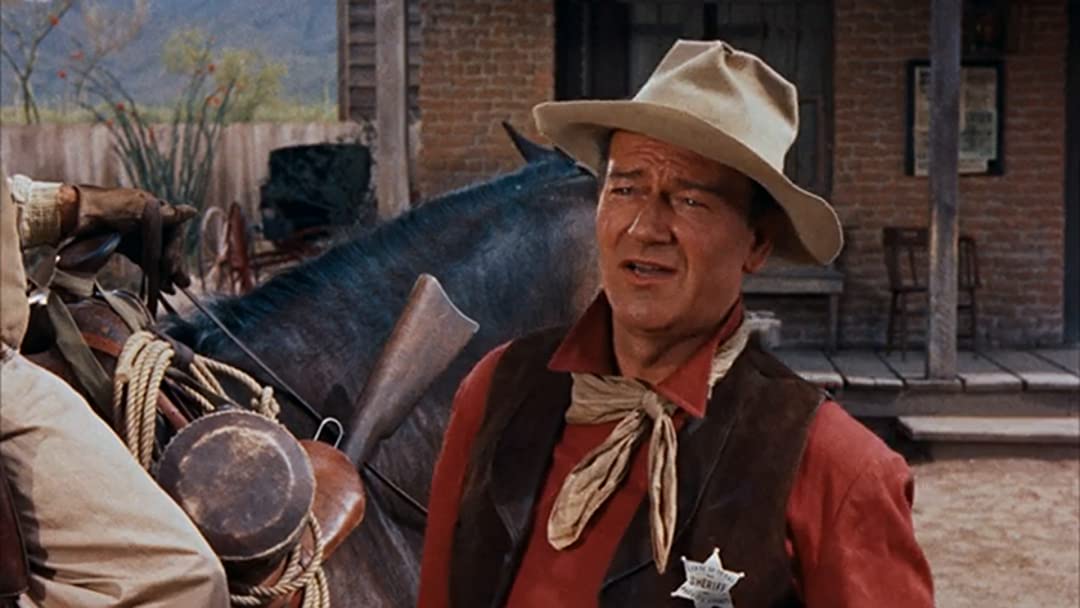Remakes are part and parcel of the movie world, but it’s unusual for the same director to remake his own work. Rio Bravo is unique. Director Howard Hawks remade it, not once, but twice, and with the same lead actor every time – John Wayne. And after that, the film went on to influence a number of other directors, resulting in some brilliant movies that owe a great deal to this 1959 Western about a cowboy, a sidekick, and a drunkard who choose to make a stand in the name of justice.
Rio Bravo has an interesting origin – it was made as a reaction by Hawks and Wayne against what they perceived as the anti-Americanism of High Noon, where the Sheriff (played by Gary Cooper) asks for help to fight outlaws, and is rejected by the townsfolk until he stands alone. Rio Bravo posits that the opposite would happen in American society – the hero does not ask for help. He doesn’t need it. He stands for justice, and the townsfolk line up to help him as best they can. The weak will be protected by the strong.

No matter where you stand on the political aspects of the film, it is a great example of both Hawks and Wayne doing what they do best. Hawks made some of the most entertaining films of the 1930s and 40s, including Only Angels Have Wings, Bringing Up Baby, and To Have And Have Not, and he had a style of his own that is often unappreciated for its simplicity.
Never a fan of the close-up, he preferred shots where the relationships between the characters and the locations were highlighted. Rio Bravo shows us actors framed in windows or doorways, so we see them in a wider setting and build up our own geography of the small town – the saloon, the jailhouse, the long dark street that connects them. These shots establish the action so well; we know that there is nowhere to run when the showdown starts.
The characters are also a great strength of the film. John Wayne never looked particularly sexy, but Angie Dickinson works so hard as Feathers, the smitten love-interest, that you buy it. Wayne’s character, John T Chance, looks poleaxed by her attentions, which gives him a charm that sometimes eluded him. There are other great performances, particularly from Dean Martin as Dude, the drunk who has to sober up, and Ricky Nelson as Colorado, the young gunslinger.

Hawks asked Jules Furthman and Leigh Brackett to write the script; Leigh Brackett was a science fiction writer who turned to film and worked on scripts such as The Big Sleep (with William Faulkner) and The Empire Strikes Back. She was involved with all three versions of Rio Bravo that Hawks made, and she had a gift with dialogue that shines through.
Experience tells us that remakes are usually inferior. Why, then, should anyone sit through Hawks’ remakes of his own film? He made El Dorado in 1966 and followed it with Rio Lobo in 1970. All three films have the same plot, same writer, and Wayne plays pretty much the same character (although the name changes) in all three. Yet El Dorado is great and Rio Lobo – well, it remains watchable, if only for Wayne.
